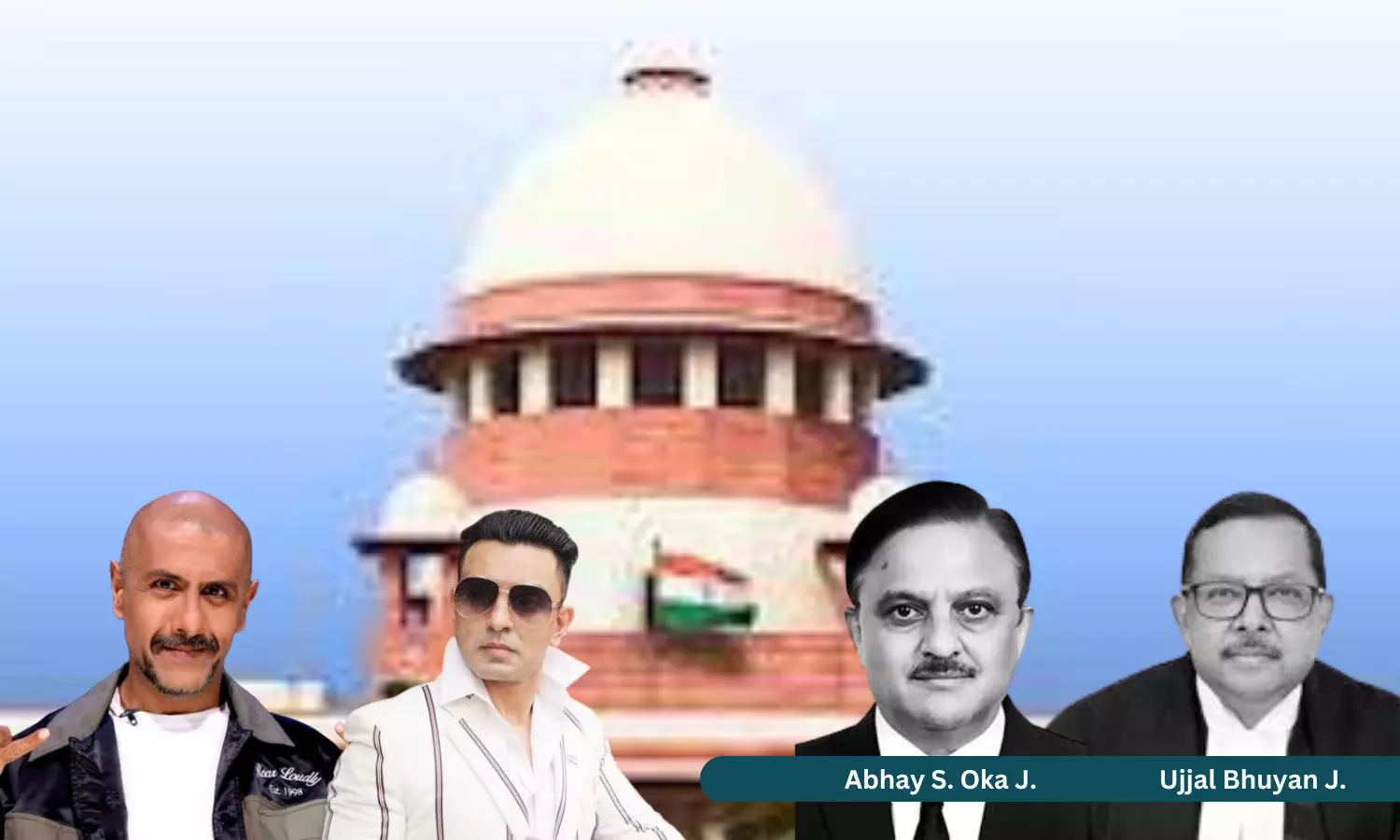
Court's Function Is Not To Do Moral Policing: Supreme Court Sets Aside Costs Imposed On Tehseen Poonawalla & Vishal Dadlani Over Comments On Jain Saint
 |
|The Court said that after finding that no offence was made out, the High Court ought not to have exercised non-existing jurisdiction by making observations on the conduct of Poonawala and Dadlani.
The Supreme Court has set aside the Punjab and Haryana High Court’s direction imposing costs on political analyst Tehseen Poonawalla and musician Vishal Dadlani for their comments posted on Twitter regarding Jain Saint Shri Tarun Sagarji.
A Bench of Justice Abhay S. Oka and Justice Ujjal Bhuyan observed, “After holding that no offence was made out against the appellant, there was no question of imposing costs upon the appellant and the other petitioner. In fact, the High Court ought to have followed the well-settled rule of cost to follow event. The respondents ought to have been directed to pay costs to the appellant.”
The Court added, “Perhaps, the High Court was swayed by the fact that the appellant and the other person arraigned as accused, made criticism of a priest of a particular religion.”
Advocate Akanksha Rai appeared for the Petitioners, while Additional Advocate General Deepak Thukral appeared for the Respondents.
Brief Facts
The dispute arose from a social media post made by Tehseen Poonawalla and Vishal Dadlani on August 27, 2016, following a session of the Vidhan Sabha that was inaugurated with the sermons of Jain Saint Shri Tarun Sagarji. Alleging that the posts expressed disrespect towards the Jain Saint and incited religious discontentment, an FIR was registered against them under Sections 295A, 153A, and 509 of the Indian Penal Code, 1860 (IPC), as well as under Section 66E of the Information Technology Act, 2000 (IT Act).
The Poonawala and Dadlani approached the Punjab and Haryana High Court seeking quashing of the FIR. After considering the matter in detail, the High Court quashed the FIR and all consequential proceedings, holding that no offence was made out against the petitioners.
However, while allowing the petitions, the High Court directed each of them to pay Rs. 10 lakhs as costs, out of which Rs. 5 lakh to trusts related to the Jain community and Rs. 5 lakh to public welfare funds. The High Court, after commenting on the contributions of the petitioners compared to that of the Jain saint, observed that the petitioners had sought publicity on social media “without having much to their credit.”
Reasoning of the Court
The Court found that the High Court had correctly quashed the FIR but erred in imposing costs despite recording that no offence was made out. The Court specifically noted, “After holding that no offence was made out against the appellant, there was no question of imposing costs upon the appellant and the other petitioner. In fact, the High Court ought to have followed to well settled rule of cost to follow event.”
The Court further observed, “We are of the view that, after finding that absolutely no offence was made out, the High Court ought not to have exercised non-existing jurisdiction by observing that the contribution made by the priest towards poor people was much more than what the appellant and the other co-accused have contributed.”
Criticizing the High Court’s order, the Bench said, “The High Court has no reason to go into the issue of the contribution made by the Jain saint. Moreover, the function of the Court is not to do the moral policing.”
The Supreme Court noted that the role of the judiciary is confined to the application of law and not making value-based comparisons between litigants and religious leaders, and that once it was found that the appellants had exercised their right to free speech under Article 19(1)(a) of the Constitution and no offence was made out, no penalty or cost could have been imposed.
Consequently, the Supreme Court partially set aside only that part of the High Court’s judgment that imposed costs on the petitioners.
Cause Title: Tehseen Poonawalla v. State of Haryana & Anr. (SLP (Crl.) No. 7550/2019)
Appearance:
Appellants: AOR Fuzail Ahmad Ayyubi; Advocates Akanksha Rai, Ibad Mushtaq, Gurneet Kaur, Hasan Raza Khan
Respondents: AAG Deepak Thukral; Advocates Akshay Amritanshu, Nikhil Goyal, Pragya Upadhyay, Drishti Saraf, Ravi Vashisht